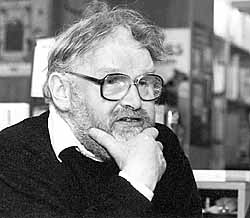A Quote by Matthew Zapruder
Keats's odes are among my favorite poems ever. As are Neruda's. So yes, I think my poems are odes, though I really just see those titles as ways of more or less orienting the poem. I've never thought about this until now, but I guess you could say that one effect of all the titles, their pervasiveness in the book, might be to once again, as so many other things do, put into question the meaning of the word "for," which I suppose is one of the great human questions: what is all this for? Why, and for whom, are we doing whatever we are doing?
Quote Topics
About
Again
Among
Book
Could
Doing
Effect
Ever
Favorite
Great
Guess
Human
Just
Keats
Less
Many
Meaning
Meaning Of
Might
More
More Or Less
My Favorite
Never
Now
Odes
Once
Other
Poem
Poems
Put
Question
Questions
Really
Say
See
Suppose
Things
Think
Those
Though
Thought
Titles
Until
Ways
Whatever
Which
Whom
Why
Word
Yes
Related Quotes
I've been writing poems since I was in the Navy - to Rosalynn. I found I could say things in poems that I never could in prose. Deeper, more personal things. I could write a poem about my mother that I could never tell my mother. Or feelings about being on a submarine that I would have been too embarrassed to share with fellow submariners.
A good poem is a tautology. It expands one word by adding a number which clarify it, thus making a new word which has never before been spoken. The seedword is always so ordinary that hardly anyone perceives it. Classical odes grow from and or because, romantic lyrics from but and if. Immature verses expand a personal pronoun ad nauseam, the greatest works bring glory to a common verb. Good poems, therefore, are always close to banality, over which, however, they tower like precipices.
If you can find two poems in a book, it could be a pretty good book for you. You know, two poems you really like. There are some poets who are fairly big names in contemporary poetry and who write a book and I might like three or four poems in the book, but the rest of them don't appeal to me personally; but I think that's the way it really ought to be. I think it's really a rare thing to like everything that somebody has written.
[My poems] of course, it's symbolic, in the way that things in a poem can be - that is, pointing to something beyond its mere ordinary meaning, while also retaining all the qualities of that ordinary meaning. In other words, it's a bear, but it's also suggesting something else, just by virtue of the attention to it. But it's not "symbolic" in that way we are taught to think about things in poems.
My favorite six letter word is always because it promises so much. My favorite five letter word is never because it insists on contradicting the promise. My favorite four letter word is once because it says it happened then. My favorite three letter word is yes because I’m just now learning to say it to my heart. My favorite two letter word is if because it makes all things possible like this: If not always If not never Then once. Yes.
I was walking every morning, and I'd take my iPod and paper and pen.?As I walked, I wrote a poem, and then I'd come home - and sometimes it's legible, sometimes not - I typed the poem up. So I have a new, yet to be published, collection of poems now. It's called Walker's Alphabet, and among other things, it is about walking. My most recent collection of poems in 2010, incidentally, was titled WALKING backwards.
I think you can perform any poem. But what I believe is that the best examples of spoken word poetry I've ever seen, are spoken word poems that, when you see them, you're aware of the fact they need to be performed. That there's something about that poem that you would not be able to understand if you were just reading it on a piece of paper.
My colleagues knew I was writing poems. I never hid it from them. I don't think they ever thought I was cheating on them. So, I think they probably saw it as being rather peculiar, that I was doing that sort of thing, but nobody ever suggested I shouldn't be doing it. I think that would be different on Madison Avenue or Wall Street, where you're really expected to be doing 110 percent for the company.



































